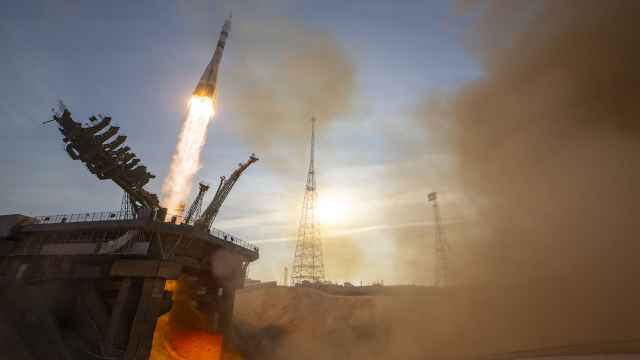Mammoths are to be redefined as mineral resources and their extraction taxed accordingly under new legislation introduced in the State Duma, InvestCafe reported, citing State Duma records.
If the legislation, introduced by Fedot Tumusov, a deputy from Yakutsk, receives support, a site on a Siberian Island in Russia's far north where a mammoth was recently discovered will be defined as a deposit. A license will be required to access it, and a tax will be levied on any mammoth materials that are extracted from it.
The exact rate of the tax to be levied remains unclear.
This is not the first attempt by lawmakers in Yakutsk to regulate mammoth remains, 80 percent of which are concentrated in the region, according to Izvestia. In 2003, the republic passed a law and began to hand out licenses to prospectors granting the right to gather mammoth remains from the land's surface.
However, the prosecutors office overruled the law in 2007. Since then the mammoth remains market, which is estimated at $1 million per year, has been unregulated.
The bill has not yet made it through its first reading.
A Message from The Moscow Times:
Dear readers,
We are facing unprecedented challenges. Russia's Prosecutor General's Office has designated The Moscow Times as an "undesirable" organization, criminalizing our work and putting our staff at risk of prosecution. This follows our earlier unjust labeling as a "foreign agent."
These actions are direct attempts to silence independent journalism in Russia. The authorities claim our work "discredits the decisions of the Russian leadership." We see things differently: we strive to provide accurate, unbiased reporting on Russia.
We, the journalists of The Moscow Times, refuse to be silenced. But to continue our work, we need your help.
Your support, no matter how small, makes a world of difference. If you can, please support us monthly starting from just $2. It's quick to set up, and every contribution makes a significant impact.
By supporting The Moscow Times, you're defending open, independent journalism in the face of repression. Thank you for standing with us.
Remind me later.





